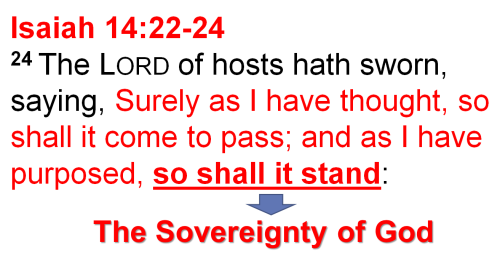Isaiah 14:22-24
22 For I will rise up against them, saith the Lord of hosts, and cut off from Babylon the name, and remnant, and son, and nephew, saith the Lord.
23 I will also make it a possession for the bittern, and pools of water: and I will sweep it with the besom of destruction, saith the Lord of hosts.
24 The Lord of hosts hath sworn, saying, Surely as I have thought, so shall it come to pass; and as I have purposed, so shall it stand:
Sovereignty
-supreme power or authority.
-a self-governing state.
Genesis 3:7
And the eyes of them both were opened, and they knew that they were naked; and they sewed fig leaves together, and made themselves aprons.
Humanity, of its own accord, chose to sever ties with the Sovereign God that bestows ultimate wisdom, embarking on a path where individual will took precedence. In this self-determined journey, mankind ventured to shape its destiny independently, relying on its own judgment and volition, rather than drawing from the infinite wellspring of divine wisdom. This decision marked a significant turning point in our history, as humans embraced autonomy over the guidance that once flowed from the source of all-encompassing knowledge.
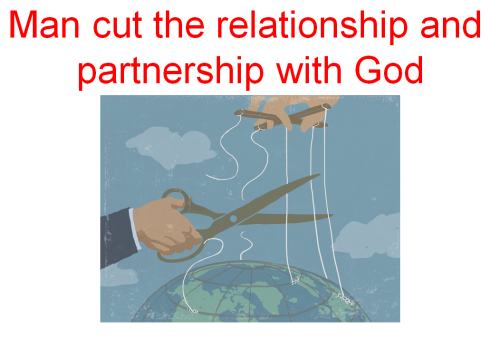
Genesis 2:7
And the Lord God formed man of the dust of the ground, and breathed into his nostrils the breath of life; and man became a living soul.
God created mankind from the dust of the ground. However, humanity began to believe that they were superior to God, despite their origins. This paradoxical notion of superiority led to various interpretations and belief systems throughout history.
In the biblical narrative, the creation of humans from the earth symbolizes both our humble beginnings and our interconnectedness with the natural world. Despite this origin story, humans have at times displayed hubris, attempting to elevate themselves above their creator. This inclination toward arrogance has been a recurring theme in mythology, literature, and religious teachings across cultures.
The irony lies in how humans, who owe their existence to a higher power, have occasionally sought to surpass or disregard that very power. This defiance can be seen in historical examples of civilizations and individuals who pursued technological advancements, societal control, or ideologies that positioned them as gods or masters of their fate.
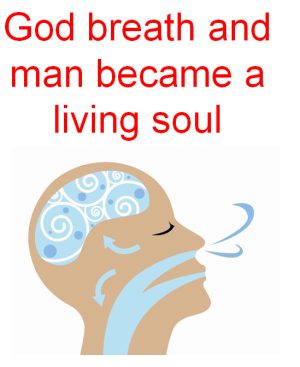
John 20:22
And when he had said this, he breathed on them, and saith unto them, Receive ye the Holy Ghost:
However, when Jesus breathed upon His disciples, they received the Holy Ghost, and from that moment, they were no longer the same. They transformed into bearers of the Spirit of God, possessing a soul that resides within the confines of a physical body.
This pivotal event marked a profound shift in their existence. The infusion of the Holy Ghost brought about a spiritual metamorphosis, elevating them beyond their previous state. They became vessels of divine grace, channels through which God’s presence flowed into the world.
The notion of the Holy Spirit dwelling within humanity carries deep theological significance. It signifies a divine intimacy, a connection between the earthly and the divine realms. The soul, once merely an individual essence, now became intertwined with the Spirit of God, representing an embodiment of holiness within mortal beings.
This transformation also brought about a renewed purpose. As carriers of the Holy Spirit, the disciples were empowered to continue the work and teachings of Jesus. They became ambassadors of love, compassion, and spiritual truth, sharing the message of salvation and divine grace with the world.
The concept of the trinity—Father, Son, and Holy Spirit—finds its manifestation in this event. The disciples, through the indwelling of the Holy Spirit, symbolized the unity and interconnectedness of the divine within the human experience. It serves as a reminder of the intricate relationship between the Creator and the created.
Throughout history, this transformational encounter has inspired countless believers to seek a deeper connection with the divine. It underscores the transformative potential within each individual, reminding us that we too can experience a spiritual rebirth and become vessels of divine love and wisdom.
In the broader context of Christian theology, this event foreshadows the promise of eternal life. The merging of the spiritual, the soulful, and the physical encapsulates the hope of salvation—the assurance that, through this divine union, we can transcend the limitations of our mortal existence and find everlasting communion with God.
In conclusion, the breath of Jesus, the bestowal of the Holy Spirit upon His disciples, marked a pivotal moment of transformation. It signaled a profound change in their nature, from mere mortals to carriers of the divine. This event continues to resonate within Christian teachings, reminding us of our potential to become vessels of the sacred, bridging the gap between the earthly and the heavenly realms.
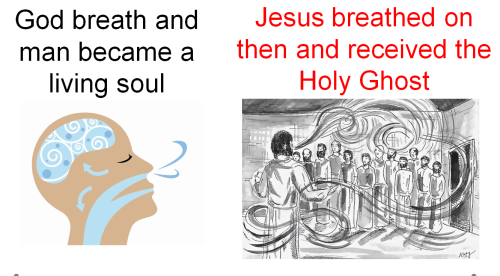
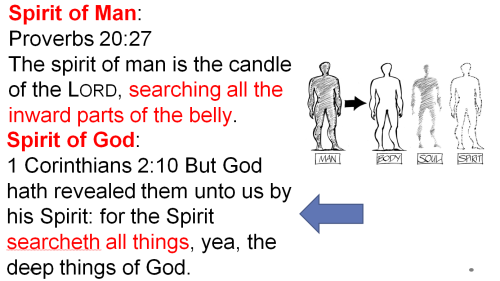
Proverbs 19:21
There are many devices in a man’s heart; nevertheless the counsel of the Lord, that shall stand.
The preoccupation with worldly desires consumes the thoughts of humanity, often overshadowing higher spiritual pursuits. Regrettably, these material cravings rarely align with the divine and fail to bring true fulfillment in the eyes of God.
Throughout history, the pursuit of wealth, power, and sensory pleasures has captivated human minds, diverting attention from the deeper purpose of existence. The allure of immediate gratification can blind individuals to the broader, more meaningful aspects of life that resonate with spiritual growth, compassion, and selflessness.
While earthly desires are an intrinsic part of human nature, they often lead to fleeting contentment. In contrast, spiritual pursuits such as cultivating inner virtues, practicing empathy, and nurturing a connection with the divine offer a more lasting and profound sense of fulfillment. These endeavors resonate with the higher ideals that align with God’s teachings.
Romans 5:12
Wherefore, as by one man sin entered into the world, and death by sin; and so death passed upon all men, for that all have sinned:
The world is replete with instances of sin; however, in the face of this inherent human frailty, God, in His boundless mercy, sent forth His Son as a beacon of salvation. This divine act of compassion serves as a guiding light, illuminating the path for humanity to find redemption and forge a deeper connection with the divine. Through the sacrificial offering of His Son, God bestowed upon us the opportunity to transcend our transgressions and embrace a life infused with grace and spiritual renewal.
Isaiah 55:8-9
8 For my thoughts are not your thoughts, neither are your ways my ways, saith the Lord.
9 For as the heavens are higher than the earth, so are my ways higher than your ways, and my thoughts than your thoughts.
Isaiah 45:7
I form the light, and create darkness: I make peace, and create evil: I the Lord do all these things.
Romans 8:28
And we know that all things work together for good to them that love God, to them who are the called according to his purpose.
Proverbs 5:21
For the ways of man are before the eyes of the Lord, and he pondereth all his goings.
Psalm 37:23-24
23 The steps of a good man are ordered by the Lord: and he delighteth in his way.
24 Though he fall, he shall not be utterly cast down: for the Lord upholdeth him with his hand.
Jeremiah 29:11
For I know the thoughts that I think toward you, saith the Lord, thoughts of peace, and not of evil, to give you an expected end.
Man’s ways:
1) Self-righteous
2) Make own choices
3) Create their own kingdom
God’s ways:
1) He imputed his righteousness
2) His will be done
3) He gave you the Kingdom of God
